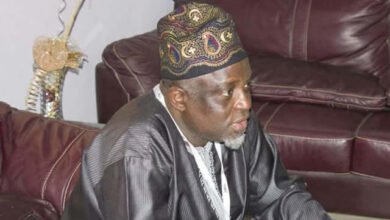No Thesis, No NYSC: FG Unveils New Mobilisation Rule

The Federal Government has approved a new policy that makes it compulsory for all graduating students to submit their theses and final-year projects into the Nigeria Education Repository and Databank (NERD) before they can be mobilised into the National Youth Service Corps (NYSC).
According to a circular issued by the Secretary to the Government of the Federation, Senator George Akume, and conveying President Bola Tinubu’s approval, the policy takes effect from October 6.
From that date, no graduate, whether trained in Nigeria or abroad, will be mobilised for or exempted from the NYSC without proof of compliance with the NERD policy.
The directive adjusts the NYSC mobilisation criteria by submitting academic outputs, such as theses and project reports, a national requirement. Section 6.1.23 of the NERD guidelines explains that the move serves as a quality assurance check and as yearly independent proof of academic enrolment and affiliation.
NERD spokesperson, Haula Galadima, noted that the policy is designed to enhance the quality of academic works nationwide.
Each submitted thesis or project will feature the names of the student, supervisor, co-supervisor, Head of Department, and sponsoring institution. By linking supervisors’ reputations to their students’ work on a publicly accessible platform, the government hopes to raise academic standards across Nigerian universities and colleges.
Furthermore, the policy introduces a monetisation mechanism to reward students and lecturers, enabling them to earn lifetime revenues from their deposited academic works.
The government believes this reform will curb certificate racketeering, safeguard Nigeria’s intellectual property, and strengthen the credibility of higher education qualifications.
Importantly, this requirement applies to all graduates from universities, polytechnics, and colleges of education in Nigeria, as well as those trained abroad, though it does not affect corps members who have already been mobilised before the October 6 enforcement date.
At its core, this policy speaks to the Child’s Right to Education and Development, which mandates that every child be given equal opportunity to develop their talents and skills to the highest potential.
By safeguarding academic integrity and rewarding genuine intellectual effort, the reform upholds students’ right to quality education and to benefit from their creative works.





